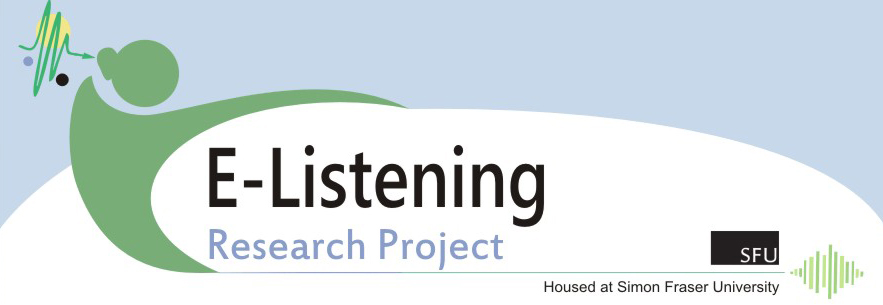What is Online Listening?
Face-to-face discussions are a form of dialogue between people which require both speaking and listening. But in online discussions, people often focus more on making a contribution (speaking) than on finding out what others have to say (listening). Those who do focus on listening are often referred to derogatorily as lurkers.
A similar focus is seen in online discussion research, which has primarily studied the messages people contribute to discussions, and not the interactions they have with existing ones. But attending to the ideas of others is at the heart of the idea of discussion, and a pre-requisite to responsiveness and uptake of ideas between people.
The E-Listening Project explores the notion that productive participation in online discussions requires more than just making posts and that online listening is an important activity to engage in and study in online discussions.
Recent Events
June 2014
Workshop: Analytics for Learning and Becoming in Practice
International Conference of the Learning Sciences
Boulder, CO, USA
March 2014
Paper: Designing Pedagogical Interventions to Support Student Use of Learning Analytics
4th International Conference on Learning Analytics and Knowledge
Indianapolis, IN USA
Listening not Lurking
Invisible online behaviors are often referred to with the term "lurking"; online listening is different from lurking in three important ways:

Project Overview
The E-Listening Project studies online listening behaviors by examining in fine grained detail in what online listening behaviors different learners engage in particular discussion contexts and why.
The specific goals of the project are to:
- Catalogue the online listening behaviors exhibited by learners in online discussions and the motivations that drive these behaviors.
- Identify if there are patterns in these behaviors that represent different online listening approaches.
- Determine how particular online listening behaviors and approaches affect individual learning and group knowledge construction.
- Develop a prototype and guidelines for designing discussion interfaces that promote productive online listening behaviors.
